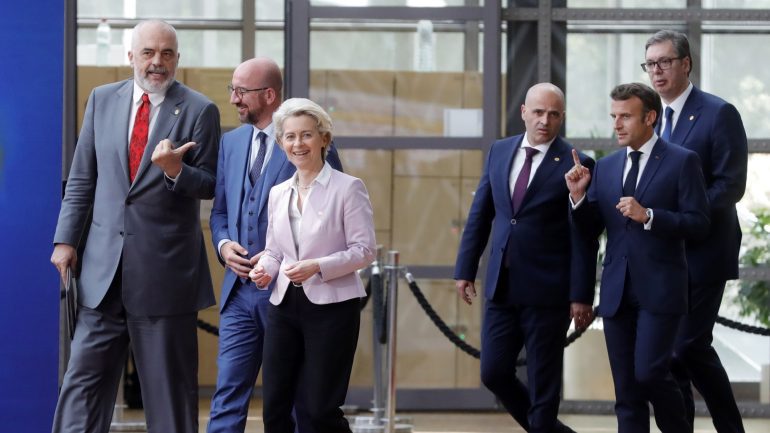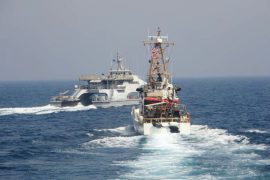Status: 06/23/2022 3:31 PM
The EU summit with the Western Balkans ended without any progress. Accession talks with North Macedonia and Albania are thus still stalled despite Chancellor Scholz’s advocacy.
EU countries have ended their consultations with the six Western Balkan countries wanting to join without any concrete results. Nearly four hours of consultations in Brussels were followed by “open discussions” according to EU circles. However, no progress has been made on the way to initiate merger talks with Albania and North Macedonia and decide on visa liberalization for Kosovo.
The press conference was originally canceled due to time constraints after consultations with European Union Council President Charles Michel, French President Emmanuel Macron and EU Commission President Ursula von der Leyen.
Ahead of the meeting, Albanian Prime Minister Edi Rama expressed his dismay at the standoff. “It is a shame that one NATO country is taking two other NATO countries hostage,” he said of the Bulgarian blockade. Another 26 EU countries made “horrific displays of impotence”.
Scholz’s ad and Macron’s settlement without success
Federal Chancellor Olaf Scholz had in vain insisted on clearing the way for accession talks. The government in Sofia demands that North Macedonia recognize its Bulgarian roots as its language and history, as well as the rights of the Bulgarian minority before the start of EU accession talks.
Even a French settlement offer did not bring any reconciliation. The situation was complicated by the fact that Bulgarian Prime Minister Kirill Petkov on Wednesday fell on the motion of no confidence,
In the context of the geo-strategic importance of the Western Balkans and the influence of Russia and China, Chancellor Scholz emphasized the rapid rapprochement of the six Balkan states with the European Union. “Germany will support the activities of the Western Balkan states on the way to the European Union,” he said in Brussels. Countries must finally realize that their reform efforts are being rewarded.
The differences between the Western Balkan countries are becoming clearer
The distinction between the six Western Balkan states, Serbia, Kosovo, Montenegro, Albania, North Macedonia and Bosnia-Herzegovina, all of which are at various stages in their EU rapprochement, became apparent in Brussels as well. Kosovo’s president, Vojosa Osmani-Sadriu, criticized Serbia, which still does not want to recognize the former province as independent.
Only countries that support EU sanctions against Russia should proceed in EU accession talks, she said. This is not the case with Serbia, for example. Osmani-Sadriou insisted that his country’s only option was to join the European Union. He also referred to Serbia, saying it was impossible to orient itself towards both the European Union and Moscow.
Serbia does not support EU sanctions
Serbia has not joined EU sanctions against Moscow for attacking Ukraine. Chancellor Scholz had repeatedly warned the government in Belgrade that EU accession candidates were expected to share EU foreign policy. Serbian President Aleksandar Vucic said in Brussels that his government is in favor of Ukraine’s territorial integrity. But some EU states don’t even respect Serbia, he said, referring to Kosovo.
The regular two-day EU Summit of 27 EU Heads of State and Government begins in Brussels at noon. According to the President of the European Union Council, Charles Michel, the EU candidate status for Ukraine and Moldova should be decided. Georgia, on the other hand, is to be given only a “European perspective” without official candidate status.

Introvert. Proud beer specialist. Coffee geek. Typical thinker. Pop culture trailblazer. Music practitioner. Explorer.





